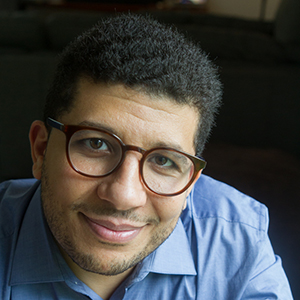Malcolm H. Kerr Dissertation Awards
Samy Ayoub
University of Arizona
2015 Co-winner (Humanities)

Samy Ayoub
We’re Not in Kūfa Anymore: The Construction of Late Ḥanafism in the Early Modern Ottoman Empire,
16th – 19th Centuries CE
University of Arizona, Middle Eastern & North African Studies
Supervised by Scott Lucas
The Humanities Committee (Chair James Grehan, Portland State University; Moneera Al-Ghadeer, Harvard University; Eric J. Hanne, Florida Atlantic University; Faegheh Shirazi, University of Texas at Austin) selected two winners for this year’s Malcolm H. Kerr Dissertation Award in the Humanities. The first is We’re Not in Kufa Anymore: the Construction of Late Hanafism in the Early Modern Ottoman Empire, 16th-19th Centuries by Samy Ayoub who obtained his degree from University of Arizona, School of Middle Eastern & North African Studies, under the direction of Scott Lucas. The second, Christian Martyrs and the Making of an Islamic Society in the Post-Conquest Period, was written by Christian Casey Sahner of Princeton University’s History Department, under the direction of Peter Brown and Michael Cook.
Dr. Ayoub builds a fascinating case for an early modern “legal turn” in Hanafi jurisprudence. He takes issue with the widely accepted idea that Islamic law was purely “jurists’ law” and that it allotted no role to the state in shaping the shari`a. Through a meticulous examination of legal treatises and fatwa collections taken from Ottoman Egypt and Syria, he shows how leading jurists discreetly introduced innovations which expanded the law-making prerogatives of the state and willingly (though not unreservedly) incorporated many state edicts into the fabric of Islamic law.
His research opens up an Ottoman legal universe in which the writings of provincial scholars would later inform debates about legal reform among nineteenth-century bureaucrats in Istanbul. He maintains that modernizing legal reform did not constitute a complete rupture in Islamic legal theory; many of its features, rather, have to be seen as an outgrowth of early modern jurisprudence. The dissertation thereby offers a careful and yet provocative reassessment of assumptions held not only in the field of Islamic studies, but in contemporary Islamic legal theory as well.